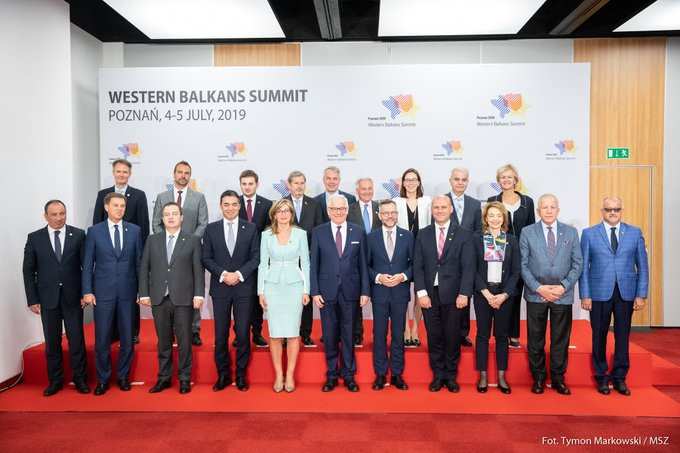Foreign Minister Cerar in Poznań: Berlin Process no substitute for region’s expansion project
- Ministry of Foreign Affairs

Group photo at the ministerial meeting of the Berlin Process
The Civil Forum was attended by Minister Cerar and other representatives of civil society from the Western Balkan countries. The participants discussed civil society’s role in the transformation of the Western Balkan countries, which are on the path toward European integration. During the panel, Minister Cerar as the main panellist highlighted the importance of civil society in strengthening democracy and democratic processes in the Western Balkans. He emphasised that an effective and transparent dialogue between political elites and civil society is the prerequisite for long-term and sustainable agreements and solutions.
In the afternoon’s plenary session of the ministerial meeting, Minister Cerar participated in the discussion “European prospects for the Western Balkans: what has to be done; the vision for the next five years.” During his speech, he stated that the Western Balkan countries’ prospects for EU membership must be preserved. He said that Slovenia will continue supporting the enlargement process and expressed the expectation that the EU will adopt strategic decisions on accession negotiations with North Macedonia and Albania this autumn.
He added that the EU must offer youth from the region a future that will allow them to develop their potentials. He recalled the Slovene initiative Positive Agenda for the Youth of the Western Balkans, which was adopted by the EU Commission but still needs to be developed. As part of the initiative, the Regional Youth Cooperation Office was launched in the frame of the Berlin Process.
During the speech, Minister Cerar emphasised again that the Berlin Process must not and cannot become a substitute for the enlargement process, but it must remain a platform that strengthens and promotes political integration with concrete projects in connectivity—not only regarding business and energy, but also digital technology and infrastructure. In this light, he mentioned that sustainable development and green technologies are future instruments for creating an inclusive and open society based on EU values and norms.

